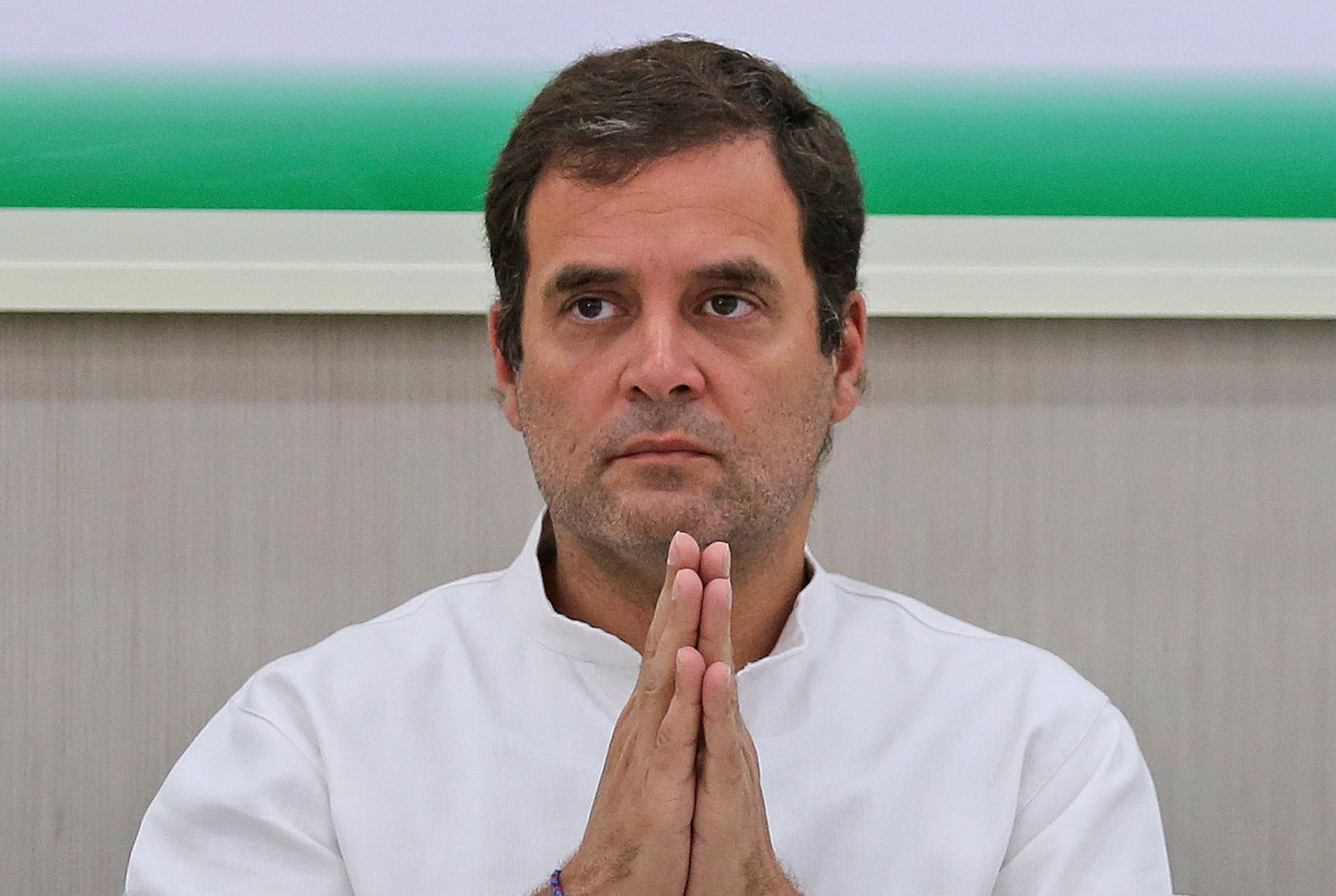Rahul Gandhi on Thursday pledged to fight the Sangh-BJP “ten times harder”, belying the notion that the electoral rout has drained him of the will to struggle on against a daunting opponent.
Soon after he had pleaded “not guilty” in a Mumbai court in a defamation case filed by an RSS activist and advocate, Rahul was asked if his fight would continue.
“Of course it will continue. It is going to intensify. The way I fought in the last five years, ten times harder than that,” he said.
Rahul faces around two dozen lawsuits across the country, mostly filed by Sangh-BJP leaders and supporters over statements he had made during election campaigns.
Dhrutiman Joshi had filed Thursday’s case over Rahul’s remark that “anybody who speaks against the ideology of the BJP, against the ideology of the RSS, is pressured, beaten, attacked and even killed”.
Rahul had made the comment in the context of the 2017 murder of journalist Gauri Lankesh in Bangalore. Since he has pleaded “not guilty”, the trial will now begin and the next hearing is on September 15.
Rahul has been granted bail against a surety of Rs 15,000. He and his co-accused, CPM general secretary Sitaram Yechury, have both been exempted from personal attendance during the hearings.
The next case against Rahul will be heard in Patna on July 6.
If the surfeit of cases is a concerted attempt to frighten him off attacking the Sangh’s ideology, Rahul seems intent on battling it out instead of choosing the easier route of apologising.
“This is an ideological battle. They are attacking me and I’m enjoying it. I’m standing with the poor, with the farmers,” he told reporters.
Thousands of Congress workers had turned up to receive Rahul in Mumbai, unfazed by his resignation as party president.
In Delhi, the party launched a scathing attack on the Sangh parivar and ensured that the social media campaign #RSSVsIndia trended for hours.
The Congress highlighted the Sangh’s failure to participate in the freedom struggle, accused it of supporting the British and cited how it had been banned three times after Independence. It painted the Sangh ideology as contradicting the idea of India.
The mood in the party is clear: Rahul remains the supreme leader whether or not he holds the top post. Ahmed Patel, who still wields significant control over the levers of power in the organisation, indicated his mind with two tweets.
“Rahul ji’s resignation letter is unfortunate. We all are accountable for this defeat,” he posted.
“He has, in a short span, already made tremendous contribution in strengthening the party and we all believe his endeavour should continue. He is and will remain my leader, our leader & will continue to provide solid strength for the Congress.”
Sister Priyanka Gandhi Vadra too tried to obliquely confront the perception that Rahul was being irresponsible and foolishly sentimental. She tagged Rahul’s statement with this tweet: “Few have the courage that you do Rahul Gandhi. Deepest respect for your decision.”
To many in the Congress, Rahul’s decision to quit as party chief at a difficult time looks like escapism. But many others hope that his drastic step would help bring about meaningful structural changes instead of the usual dressing up seen after every defeat.
By stressing accountability and declaring “at times, I stood completely alone” in the battle against Prime Minister Narendra Modi, Rahul has mounted huge pressure on the entrenched interests in the party.
If the party refuses to change even now, Rahul will be free to look for options that may include forming a new Congress as Indira Gandhi did four decades ago. However, that possibility looks remote since the party is not in open conflict with Rahul, as it had been with his grandmother.
Still, many political observers believe that Rahul will have to dramatically enhance his public stature to retain control of the Congress. His pledge to work “ten times harder” may have come in that context.











